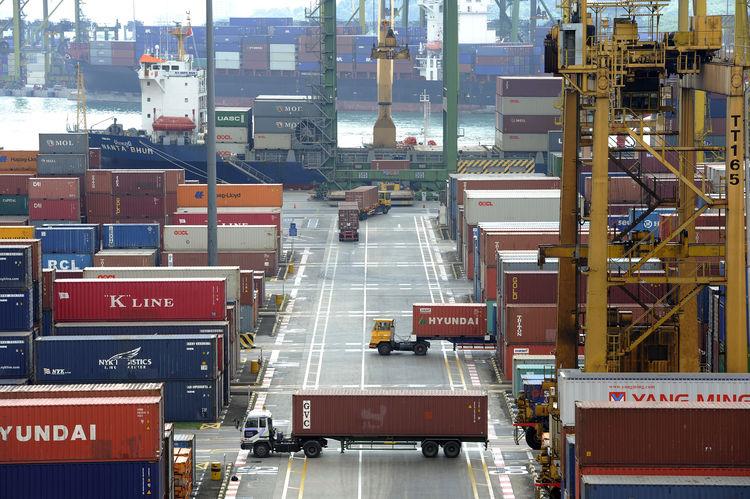- Non-oil Export Sector Loses N581bn in Two Years
The non-oil export sector may have lost over $1.9bn between 2014 and 2016. This is approximately N580.72bn, using the exchange rate of N305/dollar.
According to data from the National Bureau of Statistics, the export from the sector in 2013 August was $3.4bn. But at the end of 2015, it had dropped to $1.6bn and operators in the sector blamed government’s foreign exchange policies and lack of incentives for the drop.
Aside from the Executive Secretary of the Organised Private Exporters Association, Mr. Jaiyeola Olarewaju, who said that non-oil export declined because of the disruption in the implementation of Export Expansion Grant, incentives to exporters, non-oil exporters also blamed the Central Bank of Nigeria’s 2015 export proceeds repatriation policy for the decline.
The CBN in February 2015 ordered exporters to pay their dollar earnings into the domiciliary accounts of their various banks.
Non-exporters started protesting against the implementation of the policy when they were made to exchange their dollars for naira at the official exchange rate of N197/dollar instead of the parallel market rate of N237.
The National President, Federation of Agricultural Commodity Association of Nigeria, Mr. Victor Iyama, lamented the hardship that the policy caused exporters, noting that it drove some of them underground.
The downward twist in non-oil export earnings continued throughout 2015 as indicated by data from the CBN and in 2016, earnings fell to $1.096bn.
The Director-General, Lagos Chamber of Commerce and Industry, Mr. Muda Yusuf, called for a review of the policy, saying that it was a disincentive to the sector.
He maintained that in an economy with a weakened currency as in the case of Nigeria, exporters were supposed to benefit but restricting access to their proceeds would only drive them away from the sector.
Some of the exporters who spoke to our correspondent said that the policy was further compounding issues in the Nigerian environment, which was not conducive for business.
“Exporters face numerous challenges, especially with power, which leads to increase in cost of production. Forex policy has equally added to the problem because we are not allowed unrestricted access to our earnings.
“Currently, we are being forced to sell our proceeds at the official exchange rate of N315/dollar while in the open market, the dollar exchanges for up to N400,” a cashew processor, Mr. Banand Balodi, told our correspondent.
Another exporter, Mr. Wale Ogundeji, said he avoided the domiciliary account arrangement and instead, sold his produce at the open market outside Nigeria, using his agents.
“My agents sell and send the money to me. I can go to the parallel market and exchange it at the prevailing market rate,” he told our correspondent.
Yusuf said that that the policy was encouraging corruption among banks that would collect the dollars from exporters for N305 per dollar and then turn around to sell it for N350 to vendors.

 Forex3 weeks ago
Forex3 weeks ago


 Naira2 weeks ago
Naira2 weeks ago
 Billionaire Watch2 weeks ago
Billionaire Watch2 weeks ago




 Naira3 weeks ago
Naira3 weeks ago




 Naira2 weeks ago
Naira2 weeks ago




 Naira1 week ago
Naira1 week ago




 Naira4 weeks ago
Naira4 weeks ago




 Naira4 weeks ago
Naira4 weeks ago






















